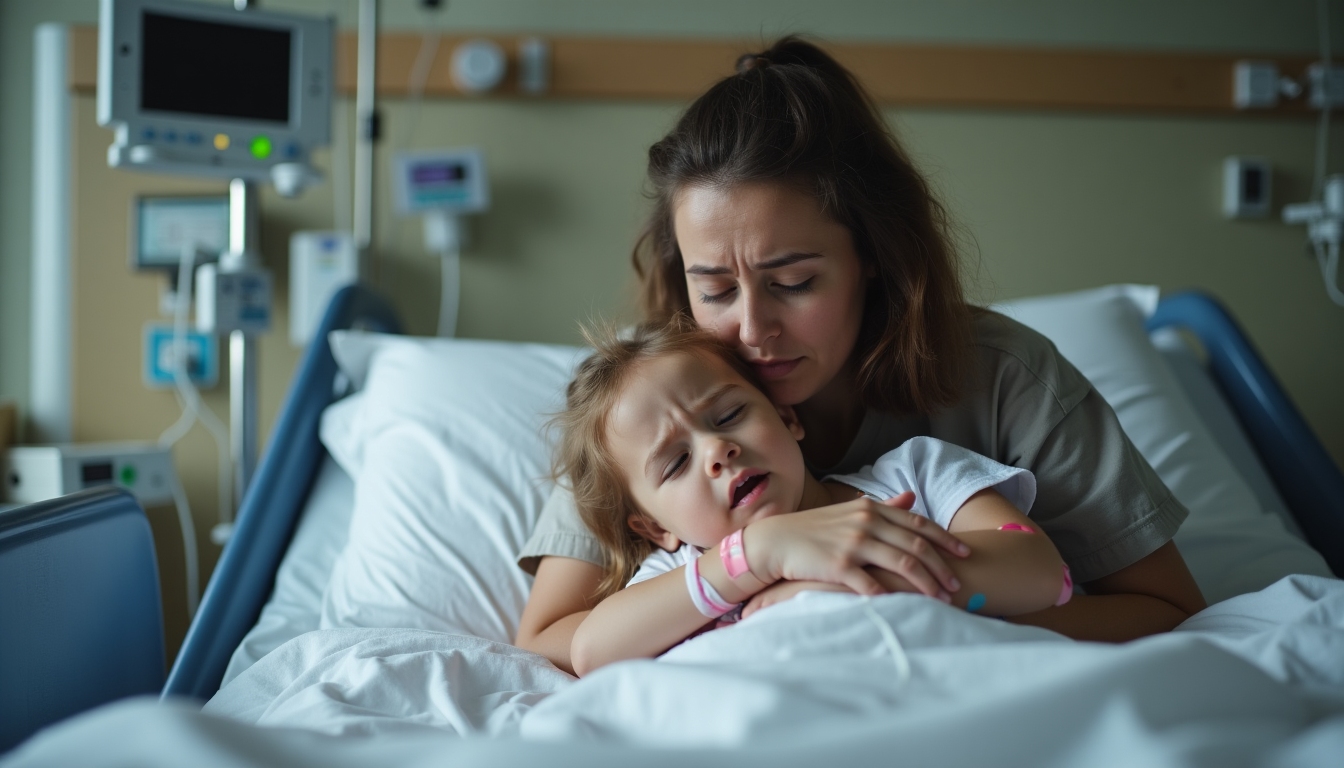Chronic illnesses like FPIES can weigh heavily on families, stirring up a mix of emotions. This article dives into The Emotional Impact of Chronic Illness on Families, focusing on chronic vomiting and its challenges. It offers real insights and support for those facing this tough road.

FPIES, short for Food Protein-Induced Enterocolitis Syndrome, is a rare food allergy hitting mostly babies and toddlers. Unlike regular allergies, it doesn’t show up right away. Hours later, kids face severe vomiting, diarrhea, and dehydration. Parents watching this unfold often feel scared and powerless.
The waiting game with FPIES ramps up the stress. You never know when a reaction might hit, so families stay on high alert about every bite. Parents wrestle with fear, guilt, and exhaustion. That constant worry can wear down their mental health over time.
Siblings don’t escape the impact either. They might feel jealous of the attention their sick brother or sister gets. Sometimes, they feel left out as parents pour energy into managing the illness. Families need to notice these feelings and make sure every kid feels cared for.

Picture the Johnson family. Their little girl, Emma, got an FPIES diagnosis at six months. Early on, it was a blur of doctor visits, late-night emergencies, and no sleep. Sarah and Mike, her parents, carried guilt for not shielding her from the pain. Meanwhile, their son Jack started misbehaving, craving their attention.
But families can push through. Connecting with others who get it—like support groups or friends—makes a big difference. Learning about FPIES helps too. Understanding FPIES: A Guide for Parents and Caregivers starts with knowing it’s about cutting out trigger foods and planning with doctors.
Chronic Vomiting is a big piece of FPIES. It’s not just messy—it’s risky. Chronic vomiting and its impact on health shows up in dehydration and missing nutrients. For little ones, that can slow growth. Families team up with doctors to keep these problems in check.
Here’s what Chronic FPIES Symptoms often look like:
| Symptom | What It Might Cause |
|---|---|
| Chronic Vomiting | Dehydration, nutrient gaps |
| Diarrhea | Fluid loss, imbalance |
| Lethargy | Tiredness, low energy |
| Slow Growth | Delays in hitting milestones |

Living with FPIES feels like a marathon, not a sprint. Calm stretches get broken by sudden flare-ups, draining everyone emotionally. Still, families find ways to bounce back. Talking openly, setting doable goals, and cheering small wins—like a new safe food—build strength.
Sarah and Mike found their groove with Emma. Every food she handled without a reaction was a celebration. They carved out time for Jack too, like game nights, so he felt included. Slowly, they built a routine that worked, holding tight to their family’s connection.
Spreading the word about FPIES matters. Families can share their stories or join awareness efforts. Teaching schools and caregivers what to watch for keeps kids safer. Advocacy turns personal struggles into something bigger—helping others understand and support.
Here are practical tips to manage FPIES: - Team Up with Experts: Find a doctor who knows FPIES well. - Make a Plan: Map out safe foods and reaction steps. - Teach Others: Show babysitters or teachers what to do. - Watch Nutrition: Check in with a dietitian for balance. - Find a Crew: Link up with support groups for advice and comfort.

Doctors and nurses aren’t just there for meds—they’re lifelines. They guide families through the chaos, point them to help, and listen when it’s rough. A caring healthcare team can lighten the load more than you’d think.
Looking at The Emotional Impact of Chronic Illness on Families, it’s clear the struggle is real. Stress, strained bonds, and daily battles pile up. But with support, knowledge, and grit, families can face it head-on. Sharing their journey also lifts up others walking the same path.

In the end, chronic illnesses like FPIES test families but don’t define them. The emotional hits are deep—fear, guilt, and all. Yet, with the right tools and people, they can adapt and even thrive. It’s about holding on to hope and each other.
Discuss Here